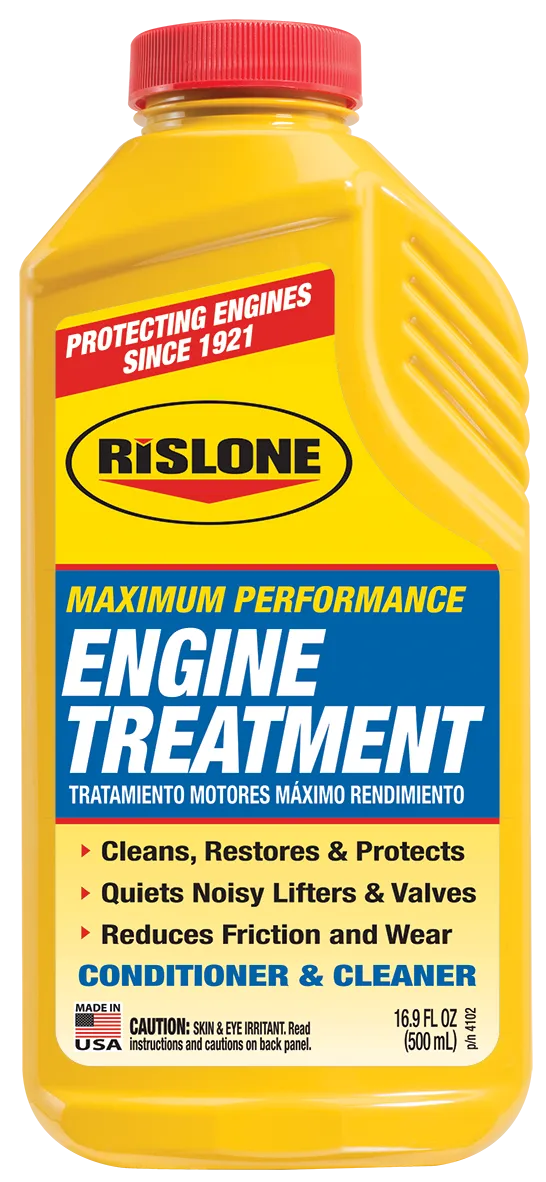How to Prevent Motor Oil Sludge
Obviously, motor oil is a blessing for engines. It keeps them lubricated and reduces friction on all the moving parts. But when it turns to sludge, it can wreak havoc on them instead.
When it appears, sludge causes your motor oil to do the opposite of what it’s meant for. Instead of lubricating the parts, they now rub together with added friction and resistance, raising the temperature and creating even more sludge. To avoid costly repairs or killing your engine outright, it’s vital that you know what causes oil sludge and how to prevent engine sludge from forming. We’ve dealt with customers whose engines have had major sludge problems, and it’s not pretty to say the least.
What Causes Engine Oil Sludge in Cars?
So what causes liquid motor oil to become a goopy mess that cakes onto your engine’s components? It all comes down to chemical reactions.
Your motor oil picks up contaminants as it moves through the engine. However, over time, as they are exposed to oxygen and high temperatures, these contaminants can start to degrade the oil. As it degrades, it oxidizes, which changes the chemical makeup of the oil and makes it less effective and more “sludgy.” Eventually, all of these reactions can lead to the formation of dreaded sludge.
Higher temperatures can increase the rate of sludge formation, along with certain driving habits, like excessive idling or short drives. These actions can prevent oil from reaching the ideal temperature, so it can’t flow well. Old cars may also struggle with sludge formation.
How to Clean Oil Sludge From Your Engine
If you’ve already become a victim of it, you’ll need to know how to clean engine sludge. The best way to get rid of it is to use a high-quality engine treatment.
Rislone Engine Treatment is an award-winning formula that helps keep your engine running clean. It penetrates into areas where sludge is likely to form and clears out these deposits by dissolving them into the oil. Then, they’re removed with the next oil change.
This treatment is not an engine flush, and it works for synthetic and conventional motor oils alike. We also offer engine treatments for high-mileage vehicles.
How to Prevent Oil Sludge in Your Vehicle
Follow these steps to keep oil sludge at bay:
- Check the owner’s manual. In it, you can find information on the type of oil you should be using with your car and any conditions, like city driving, that require you to get oil changes more often.
- Take care of your oil. Get oil changes as needed and consider going with synthetic oil and additives. Synthetic oil can be more thermally stable, reducing how quickly it degrades in harsh environments, while anti-oxidant additives can reduce the effects of oxygen exposure that turn your oil to sludge in the first place.
- Get the right gasoline. Low-quality gas can create 19 times the engine deposits of high-quality brands. Higher-quality gas often contains detergents and dispersants that help prevent deposits.
- Avoid bad driving habits. Try to stay away from driving with frequent stops, long-term idling, or frequently making short commutes. Excessively hot and cold weather can also increase engine sludge.
- Add an engine treatment. Not only does Rislone Engine Treatment dissolve existing sludge, but it also helps prevent further buildup.
Keeping your engine clean is critical to helping it perform its best. Sludge can shorten your engine’s lifespan and performance and hurt your fuel economy, so be sure to keep it out of your engine. To find Rislone products, use our store locator to find a dealer near you.




